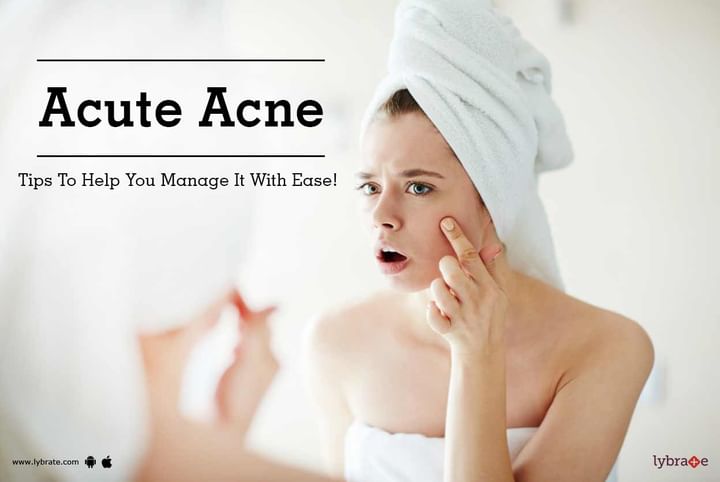Acute Acne - Tips To Help You Manage It With Ease!
One of the skin’s main functions is protection, and one of the ways it does that is by producing sebum. During teenage and early adolescent years, there is a release of excessive sexual hormones, which also leads to excessive sebum production. This clogs the pores, leading to accumulation of sebum within the skin layers. There are also bacteria trapped within this, leading to infections. Symptoms could include blister formation with pustules, redness, and severe pain. In people with naturally oily skin, this can be a major problem, with large acne which may leave marks when healed.
Causes:
Excessive hormones (androgens).
In girls, correlation with menstrual cycles, pregnancy, and polycystic ovaries, indicating an association with increased hormone levels.
Management: As it is easy to identify if you are prone to developing acne, steps should be taken to avoid developing acne or reducing its severity once they appear.
- Touching acne is a strict no-no. There is a great tendency to keep picking at it, but this should be avoided as the infection can spread to other unaffected areas.
- Using a cold towel or soft cotton cloth can help in soothing the area
- Ice cubes can also be used on the acne. This will also reduce blood supply and curtail increase in severity
- Acne is proven to be an indication of stress, and so stress management is very essential.
- Keep calm by various methods – meditation, music, yoga, exercise
- A regular exercise routine also is very helpful. The sweating during the exercise helps in clearing up the pores and keeping the skin clean. Sebum is more often cleared out this way, leading to reduced acne
- Lifestyle (sleep and diet): A healthy eating pattern with reduced oily foods and sugars and more amounts of fresh foods is highly helpful. A good amount of sleep is also beneficial for overall skin health.
- Garments which come in touch with facial skin like pillow covers should be washed with gentle soap
- Regular skin care routine should be maintained including frequent washing, regular moisturising, and periodic exfoliating.
- Avoid too many chemicals and adhere to a regimen using as many natural substances as possible.
- Mild gels or lotions like tretinoin, tazarotene, and adapalene are useful in controlling acne
- Topical antibiotics like clindamycin or erythromycin combined with benzoyl peroxide may also be used if more severe
- Birth control pills are also used to regulate hormonal levels in some women.
- Scars can be treated with laser light therapy, dermabrasion, chemical peels, or steroid injections
- Remember that acne is a part of growing up, and will naturally reduce after the growing years.
In case you have a concern or query you can always consult an expert & get answers to your questions!



+1.svg)
